Besiders
Cook It Forward
When Francesca Hong's livelihood was threatened by the COVID-19 crisis, she found an opportunity to build community through food.
Text—Jonnah Perkins
Photos—Jesse Perkins
“Some of the darkest times last year were [spent] wondering what the point of even having a restaurant was when you don’t have guests,” Francesca Hong told me as we sat at the open-kitchen bar of Morris Ramen, a cozy 40-seat restaurant in the downtown core of Madison, Wisconsin.
Hong opened Morris Ramen in 2016 with her partner, Matt Morris, and their mentor, Shinji Muramoto, the same year she gave birth to her son. The concept was to serve Asian comfort food made with locally sourced Midwestern ingredients.
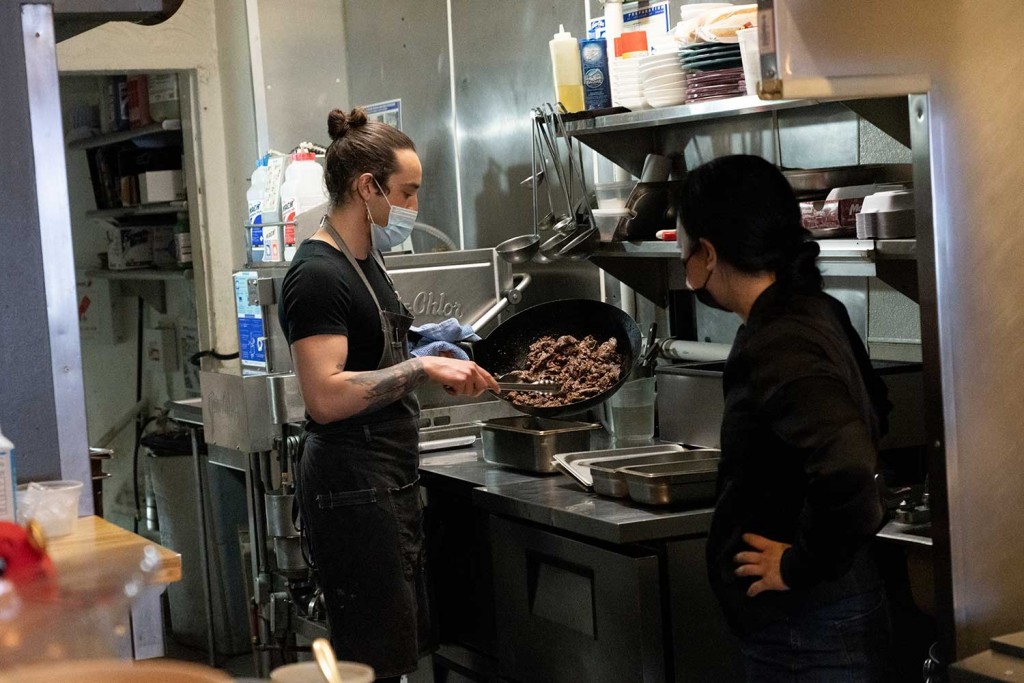
People loved it, and Morris Ramen soon became one of Madison’s most cherished eateries. But the pandemic threatened to take that all away.
Rather than get swept away by fear and grief, Hong found a calling. “It forced us to realize our purpose is to serve the greater community,” she explained. “The power of food is that you can still comfort and nourish people even if you are not in the same physical space.”
Many restaurants were not able to keep their staff employed through the COVID-19 shutdown; in some cases, owners shuttered their businesses. Amid the uncertainty, Morris Ramen found a way to have an impact in a city that was hurting not only from the pandemic but also a racial and economic reckoning.
This work has taken Hong on a path that bridges food, environmentalism, activism, and politics.
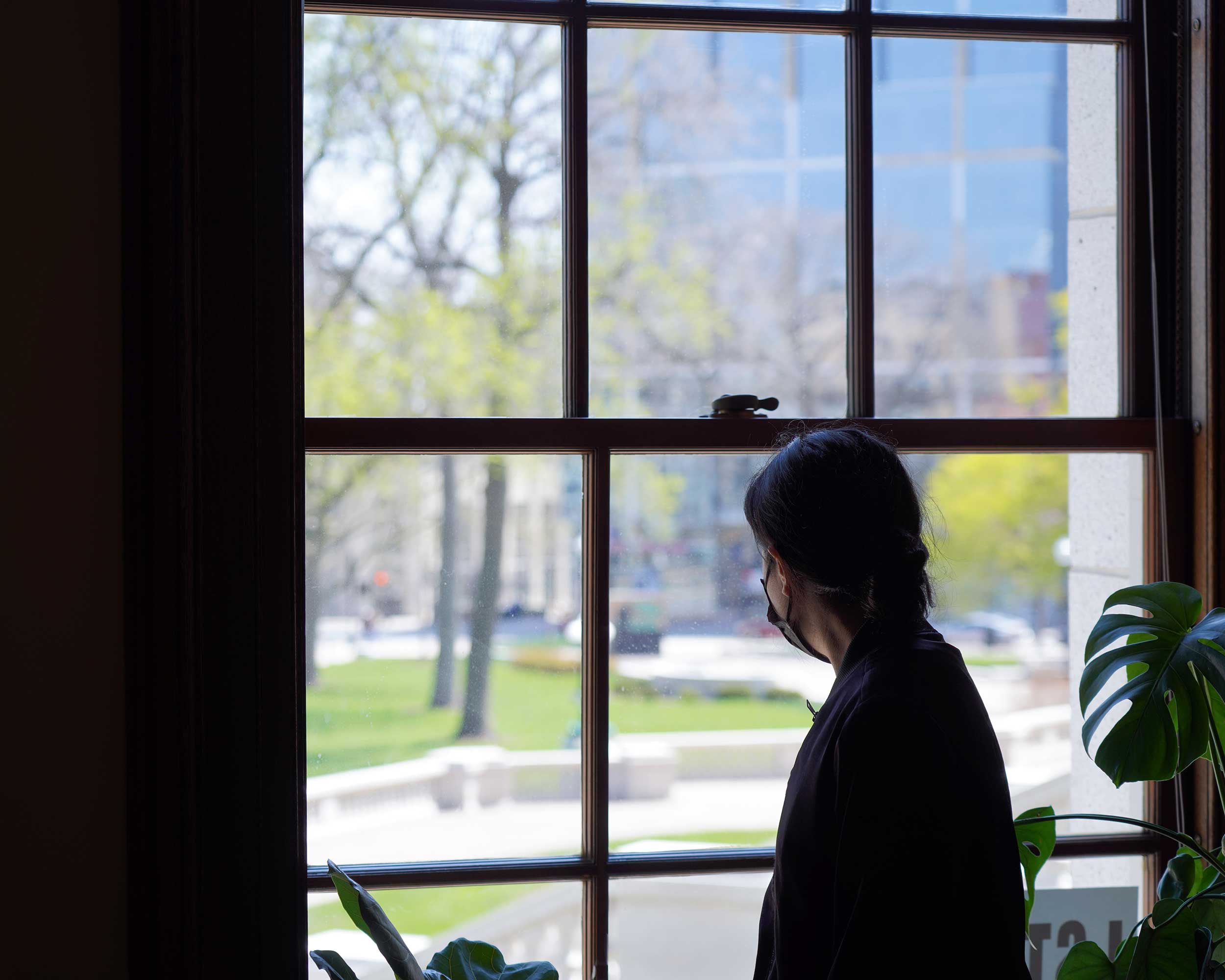
Real community in food security
___
Though the pandemic carved a wound in the restaurant ecosystem, workers in the service industry have always known instability. The fast-paced, competitive food system takes no mercy on restaurant owners, chefs, managers, staff, or farmers. Hong knows this better than most, having spent years working in some of the city’s most prestigious kitchens prior to opening Morris Ramen. Those experiences gave her a passion for creating and working within a team, and organizing around a common vision. So for Hong, it was extremely important to keep the Morris Ramen team intact.
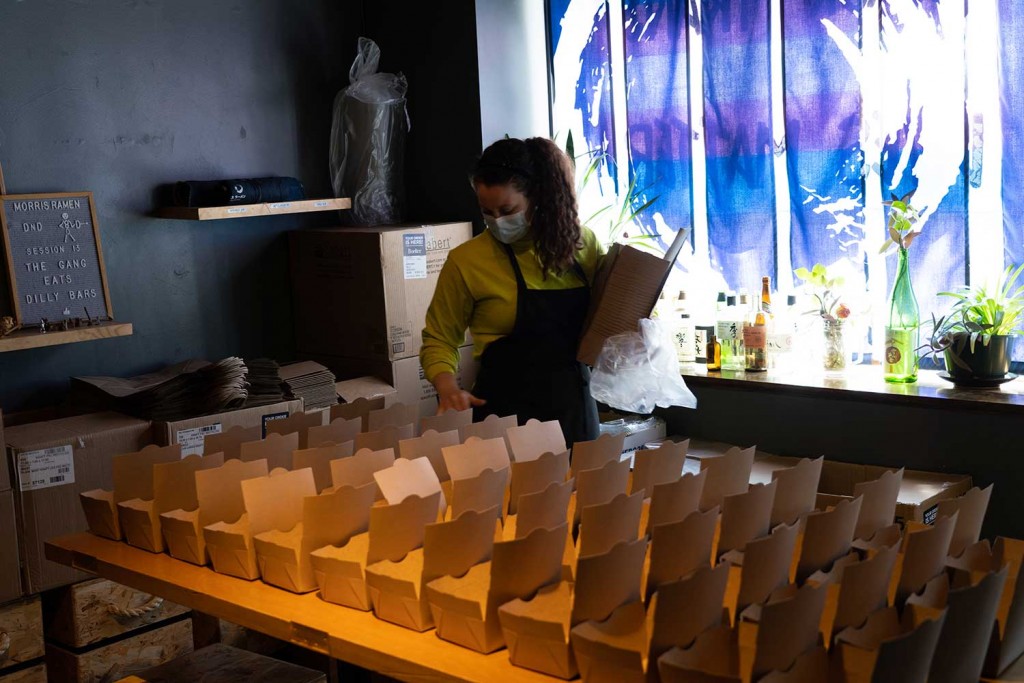
“We needed to keep our servers even though we had no guests to serve,” says Hong. That meant retraining the staff at Morris Ramen for all aspects of the restaurant. “Now we have a much more egalitarian system. Everyone is cooking and prepping, we are all in constant communication.”
While food pantries and nutritional relief programs were being stretched thin in the early months of the pandemic, Hong co-founded an organization that brought fresh, prepared meals to food-insecure homes, while also keeping the burners on at local restaurants. Cook It Forward is an end-to-end food network of restaurants, non-profits, and community leaders who understand where fresh food is needed most.
“We realized we needed more purpose, especially since we weren’t going to see our guests. We needed to maintain a real, tangible community,” she says. Cook It Forward is how many in Madison’s restaurant world got through the pandemic.
“I haven’t felt a lot of grief in my life, no incredibly defining sorrowful moments, until COVID. The grief was closing the doors, grief was not knowing what would happen to the staff, grief was knowing that so many people in the restaurant industry were panicked and suffering. The way I had to deal with it was finding work and finding community.”
Stepping up to change
___
Having grown up in Madison and worked her way through its culinary scene, Hong’s commitment to the local community and local economy are inseparable. As a mother and an entrepreneur, Hong’s drive is increasingly to care for others. In 2020 those priorities prompted her to run for election in the 76th District of the Wisconsin State Assembly. She won, becoming the first female Asian-American legislator in the state.
Seeing the disorganized response to the COVID crisis, Hong came to the conviction that local leaders needed to meet the moment.
“I knew that our elected officials were going to put responsibilities on our local municipalities, who were going to have to make really difficult decisions,” she told me. “We needed people from each industry to step up.”
Though she was originally inspired to represent the service industry and those working on the front lines of food, the Black Lives Matter protests of summer 2020 helped Hong understand that discrimination in the service industry runs deeper than the class-based labour divide that prevails in almost all areas of food work. While the city is known for its colourful restaurant scene and vibrant campus, Madison remains one of the most racially and economically segregated cities in the U.S.
“I am embarrassed that I haven’t prioritized this work in the past,” she said with characteristic candour and vulnerability.
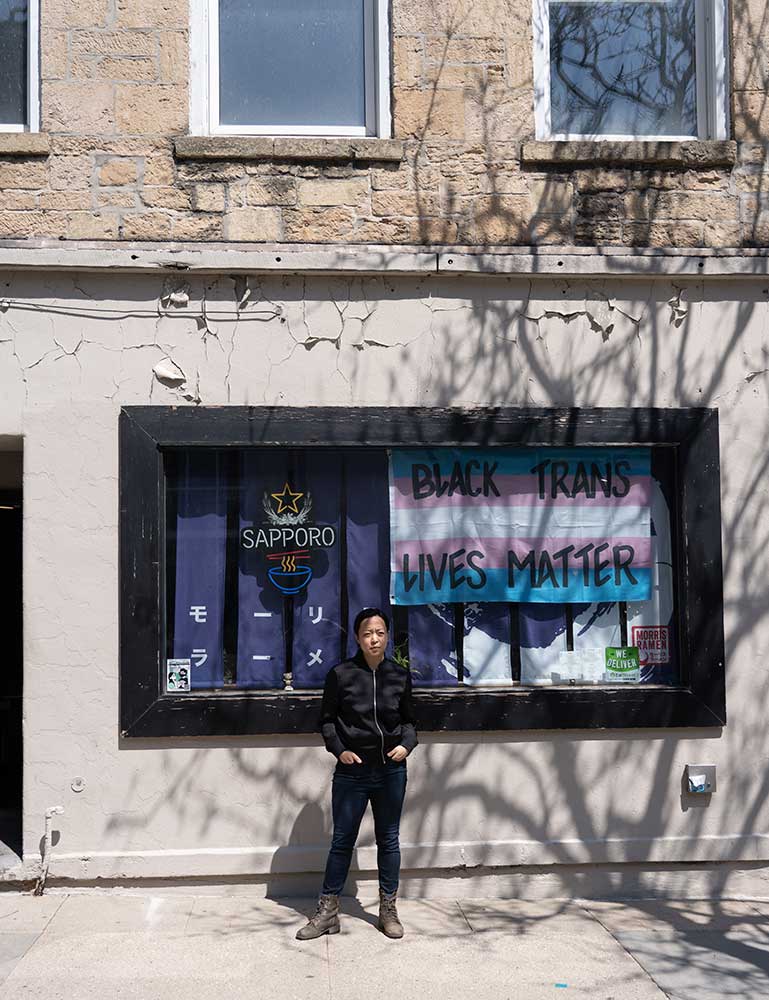
“I’ve known for a while that there is anti-Blackness in the restaurant industry. There are stereotypes and misogyny that I have internalized. I’ve told myself that if I want to advance, it is better for me to just stay quiet. I am embarrassed that it took a pandemic for me to recognize that I was actually feeling the pain of my Black and Brown brothers and sisters.”
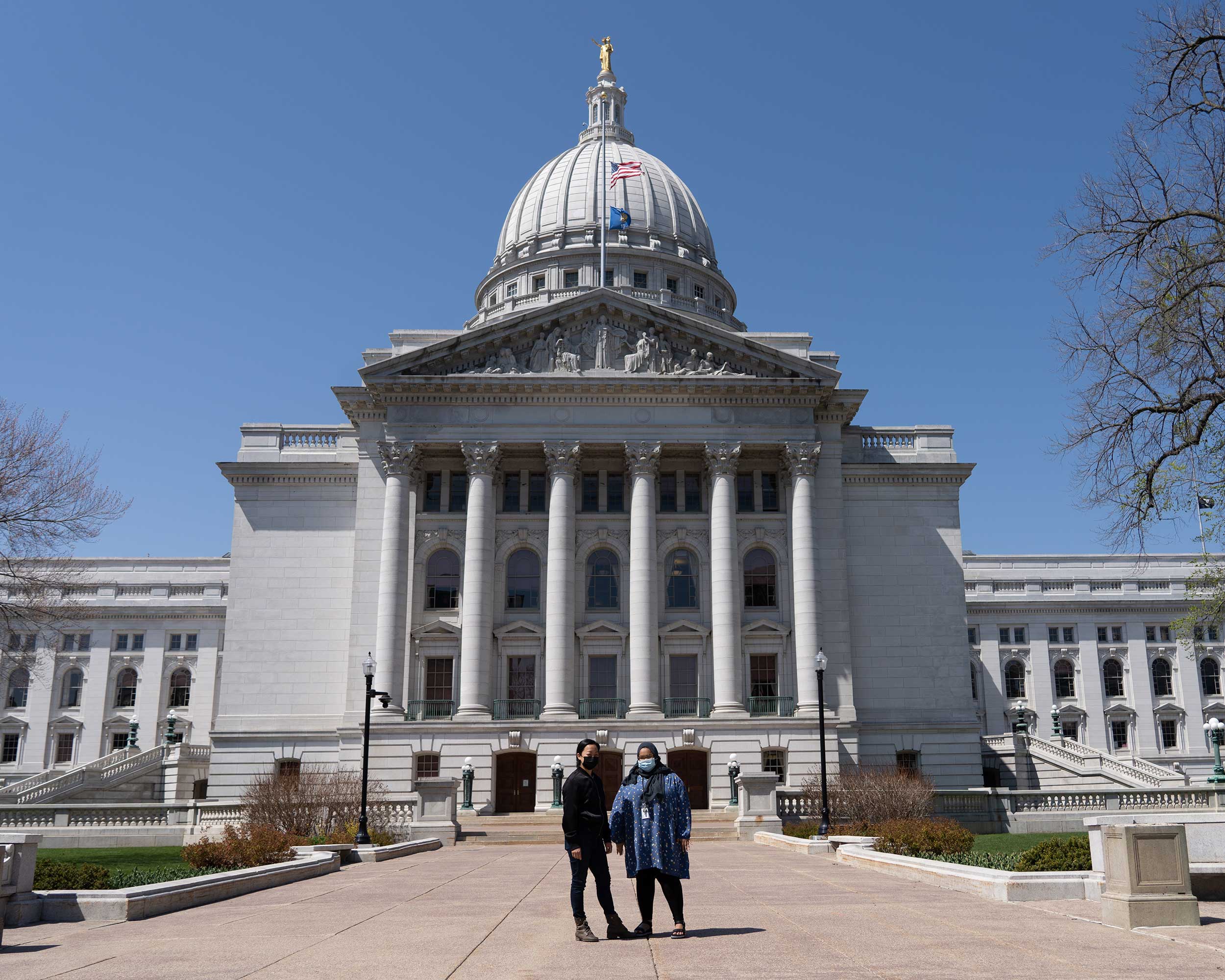
Seeing humans as humans
___
Stepping outside of the comforting warren of Morris Ramen into the late morning sun, Hong calls her chief of staff, Nada Elmikashfi, to meet her at the office. Just a few hundred feet from Hong’s small restaurant, the State Capitol towers almost 300 feet overhead. The two women walk side by side while Hong explains her approach to leadership in the halls of the Capitol, which is built on “seeing humans as humans.”
“I’m not centring myself but rather naming things for what they are. Working inside the State Capitol makes me realize even more that it doesn’t belong to me or anyone else I work with, it belongs to the people.”
Hong and Elmikashfi pass through the heavy wooden doors of the staff entrance. Hong has walked from her steamy kitchen into a hall of marble, but her demeanour doesn’t change; only the setting has shifted. For her, these worlds are both built on service and caring.
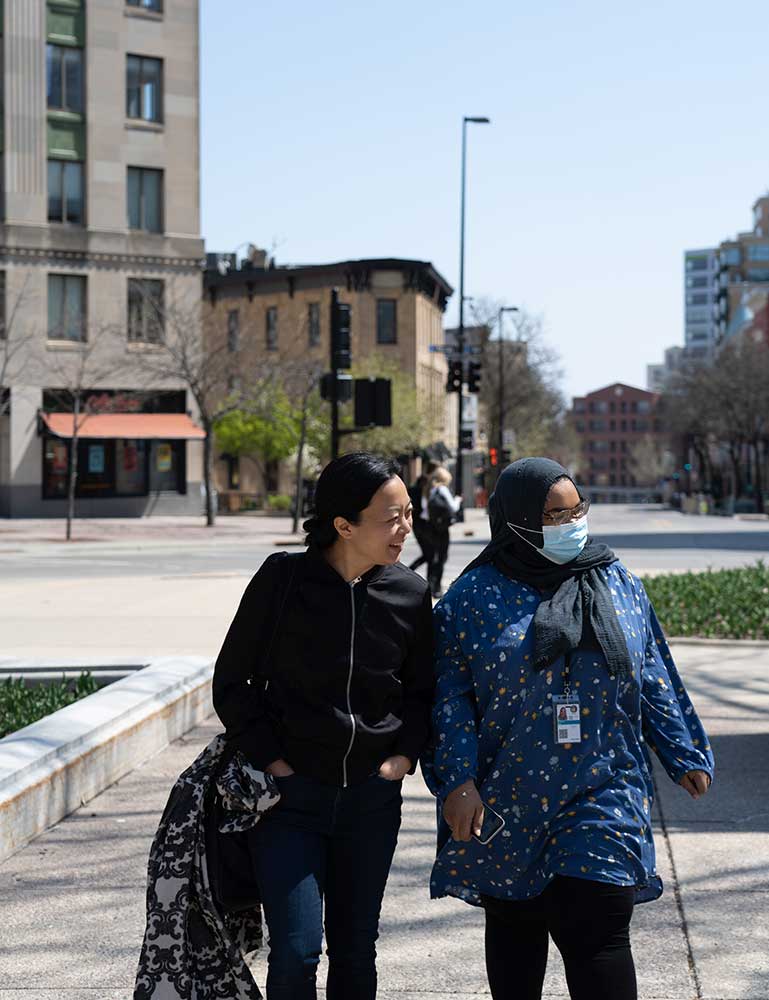
Since becoming a state legislator, Hong has turned her attention to the issue of water contamination, a problem that affects many of her city’s residents.
Madison is a university town that is centred on a narrow isthmus of land between two lakes, Mendota and Monona. But in this city built around fresh water, access to clean, safe drinking water is not currently a reality for many of the constituents in the district Hong represents.
“Water is literally life. Having access to clean water is an essential right,” she explains. “We know that the long-term health problems facing lower-income communities are coming directly from PFOS contamination in water. The burden of much of the pollution disproportionately impacts communities of colour. The history of environmental racism is widely known in these neighbourhoods. This is not a coincidence.”

PFOS is a synthetic industrial contaminant that has been found in Madison groundwater, wells, and lakes in excess of 22,000 parts per trillion. The Environmental Protection Agency does not advise consuming water with more than 70 ppt of PFOS. Holding polluters responsible is a key priority in Hong’s policy work. She has co-authored one of the most comprehensive PFOS remediation bills in the U.S., the CLEAR Act, which aims to make abundant funding available for water testing and cleanup.
Whether she’s addressing food security or environmental contamination, Hong’s approach to leadership starts with compassion and builds into movement. “The first step is understanding that our community is in pain,” she says. “From collective suffering and collective grief also comes collective hope and power.” Hong has turned her love for cooking, her commitment to environmental justice, and her passion for grassroots political organizing into holistic action, reaching people through their hearts and their bellies.
Jonnah Perkins is a writer, farmer, food activist, and competitive athlete. After over a decade of organic agriculture, her passion for local food has spilled into hunting, fishing, and foraging to experience the richest spectrum of emotions in her pursuit of localism. Her curiosity is focused on the intersection of environmentalism, food procurement, and adventure.
Jesse Perkins is a photographer and seventh-generation farmer currently specializing in organic seed potato production. Away from the farm, he likes to find new adventures near his home in the driftless region of southern Wisconsin, often with his two kids, Paavo and Mischa. Through photography and film, he aims to capture both wild spaces and the people in agriculture making a difference to protect and strengthen their local communities and environment.
Never Miss Another Issue
Two issues per year
25% OFF previous issues
Free Shipping in Canada